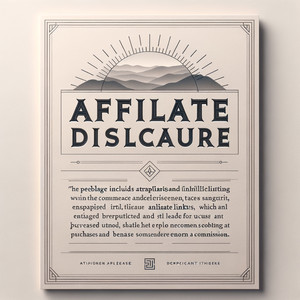
Affiliate marketing and blogging may sound like buzzwords, but they’re powerful tools that can help you build a sustainable online income. With a bit of effort, the right approach, and some persistence, anyone can get started, even without any prior experience. or any big upfront payment
- Affiliate marketing is essentially a process where you earn a commission for promoting other people’s products or services.
It’s like being a matchmaker, but for online products. You find something awesome, share it with your audience, and get paid when someone makes a purchase through your link.
- Blogging comes into play here as your primary platform for promotion
When you blog, you’re creating valuable content that attracts visitors. These visitors can then turn into potential customers for the products you’re promoting. It’s all about building trust and providing value. Your blog serves as the cornerstone of your affiliate marketing efforts.
- The fusion of blogging and affiliate marketing offers numerous benefits.
For one, it’s a low-cost business model. You don’t need a huge budget to start blogging or join affiliate programs. Plus, it gives you the flexibility to work from anywhere and at any time. This independence makes it a favorite for many people looking to escape the typical 9-to-5 grind.
- The synergy between blogging and affiliate marketing is where the magic happens.
SEO-optimized blog posts can rank high on search engines, drawing traffic organically. The traffic you generate becomes the audience to whom you recommend products. With a blog, you’re not just throwing links out there; you’re crafting a narrative that informs, engages, and guides your readers, making them more likely to click and convert.
Getting Started: Setting Up Your Blog
Picking the right niche is crucial.
Think about something you’re passionate about, and consider where you can offer unique insights. The trick is to blend your passion with profitability. Ideally, your niche should strike a balance between something you love and something that has demand.
When it comes to choosing a blogging platform, there are plenty of options out there, but Wealthy Affiliate tends to be the go-to for a lot of beginners. It’s user-friendly, highly customization, and there’s a ton of community support. Plus, most affiliate marketers swear by it.
SO FULL DISCLOSURE:
This website does contain affiliate links. which i do make a commission if you do follow a link and make a perches These links will lead you to a FREE SIGN UP for an affiliate marketing platform called Wealthy affiliates, if you are interested in building a online income this blog, will help you do just that and there is no additional cost to you to explore these links SO ENJOY THE BLOG!!

Next up, Lets look at, Setting up your website. This sounds techy, but it’s pretty straightforward. Choose a domain name that reflects your niche, then find a reliable hosting provider. Most hosting providers offer one-click WordPress installations, which makes your life easier.
SEO optimization isn’t something you should leave for later.Right from the start, focus on SEO best practices. This involves using the right keywords, creating an intuitive site structure, and ensuring your site loads quickly. SEO is your ticket to getting found by the right people.
The aesthetic of your blog matters too. Choose a clean, responsive theme. Your blog should be easy to navigate, with a clear layout that’s easy on the eyes. User experience plays a huge role in keeping visitors on your site and encouraging them to explore further.
Lastly, don’t forget about the essential pages. Make sure you have an About page, a Contact page, and a Privacy Policy. These pages build trust and give your site a professional look right from the get-go.

Creating High-Quality Content
Understanding who you’re writing for is critical. Define your target audience and get to know what they need, want, and struggle with. This helps in crafting content that truly resonates with them.
Generating content ideas can be fun and challenging.
Look at trending topics in your niche, see what questions your audience is asking on forums, and even check out what your competitors are doing. Brainstorming tools and keyword research can also come in handy.
Compelling blog posts are the heart of affiliate marketing. Write in a conversational tone, like you’re chatting with a friend. Use engaging headlines, short paragraphs, and include visuals like images and videos to break up the text. Always focus on providing value.
SEO optimization is crucial for every piece of content you publish. Use relevant keywords naturally throughout your post without overstuffing. Optimize your meta descriptions, headings, and image alt texts. Internal linking to other relevant posts on your blog can also boost your SEO efforts.
Consistency and quality are your best allies. Stick to a regular posting schedule that works for you, whether it’s once a week or twice a month. Make sure each post is well-researched, informative, and useful. Over time, this builds credibility and keeps your audience coming back for more.

Affiliate Marketing Essentials
Different types of affiliate marketing suit different strategies. You can go for pay-per-sale, where you earn a commission every time someone buys a product through your link. There’s also pay-per-click, where you get paid for every click on your affiliate link, and pay-per-lead, where you earn for every lead or signup generated.
Applying for affiliate programs
can sometimes be a bit competitive, especially if the program is well-known. Make sure your blog looks professional and has some quality content to improve your chances of getting accepted. Some programs might ask for traffic stats, so having a decent amount of visitors helps.
Compliance and ethical considerations are key. Always disclose your affiliate relationships. It’s not just a legal requirement but also helps build trust with your audience. Be transparent and genuine with your recommendations. Promote products you truly believe in, as this will resonate more authentically with your audience.
Promoting Your Blog and Affiliate Links
Harnessing social media platforms is a smart move. Platforms like
can drive significant traffic to your blog. Share your posts, engage with followers, and participate in relevant groups to get the word out.
Building an email list is another powerful tool.
Or offer something valuable like a free ebook or a discount code to encourage people to subscribe. Once you have a list, you can send out newsletters and updates, keeping your audience engaged and informed about new content and affiliate products.
Don’t underestimate the power of SEO. Optimize your blog posts and website content to rank higher on search engines. This brings organic traffic to your blog without the need for paid ads. Focus on high-ranking keywords, quality backlinks, and a user-friendly site layout.
Collaborating with other bloggers can amplify your reach. Guest blogging, backlink exchanges, and joint ventures can introduce you to a broader audience. It’s about building a community and leveraging each other’s strengths and networks.
Paid advertising is an option for those ready to invest a bit more.
Google Ads,
Facebook Ads,
and sponsored posts can give your blog and affiliate links a visibility boost. Make sure to target your ads specifically to get the best return on investment.

Measuring Success and Scaling Up
Keeping an eye on key metrics helps you understand how well your blog and affiliate marketing efforts are performing. Track things like traffic, click-through rates, conversion rates, and revenue. Tools like Google Analytics and affiliate dashboards can provide detailed insights.
Using analytics tools is a no-brainer.
They help you see what’s working and what’s not. Look at where your traffic is coming from, which posts are performing best, and how your audience is interacting with your content. This data is gold—for refining your strategy and boosting your results.
Adjusting your strategy based on what you learn from your analytics is essential. If something isn’t working as well as you’d hoped, don’t be afraid to tweak it. Maybe a certain type of content isn’t resonating, or perhaps you need to target different keywords. Being flexible and open to changes keeps your efforts effective.
Understanding Affiliate Marketing Networks Before Starting
Scaling up efforts involves expanding what already works. If you have a successful post, consider creating a series around it or turning it into different formats like videos or podcasts. Boost your ad spend on high-performing campaigns or explore new affiliate programs to diversify your income.
Thinking about long-term strategies is crucial for sustained growth.
nurturing your audience, and staying up-to-date with industry trends keeps your blog relevant. Plan for the future by setting goals, staying informed, and being ready to adapt.





Your post, provides a fantastic roadmap for anyone looking to dive into affiliate marketing! I love how you break down complex concepts into simple, relatable terms, making it accessible for beginners. The emphasis on building trust and providing value through blogging is spot on; it really is about creating a connection with your audience.
Your tips on choosing a niche, SEO optimization, and creating engaging content are incredibly practical and essential for success. Plus, the reminder about compliance and transparency is crucial in building long-term relationships with readers.
I particularly appreciate the call to action regarding social media and email marketing—these are often overlooked but can significantly boost traffic. Overall, this guide is an excellent resource for those starting their affiliate marketing journey. Great job!
Hi Gift,
I’m truly glad you like the article, I truly hope it helps people along their journeys in affiliate marketing.
Thanks for the great comment.
This article does a fantastic job of breaking down the synergy between blogging and affiliate marketing! I love the analogy of being a matchmaker for online products; it really captures the essence of how we connect our audience with valuable resources.
I appreciate how it encourages newcomers to consider platforms like Wealthy Affiliate, which simplifies the setup process and offers community support. The section on creating high-quality content is particularly important. Writing in a conversational tone makes a huge difference in engaging readers. Plus, focusing on SEO from the get-go is such a smart strategy for driving organic traffic.
Lastly, the advice on measuring success and being adaptable is crucial for growth. Understanding what works and being open to change will definitely help bloggers thrive in the affiliate marketing landscape. Overall, a very informative and motivating read!
Ho Kavitha
Thank you for the great comment, I truly hope it helps people looking for a change in life and to show them their are great options out there.
Thanks again